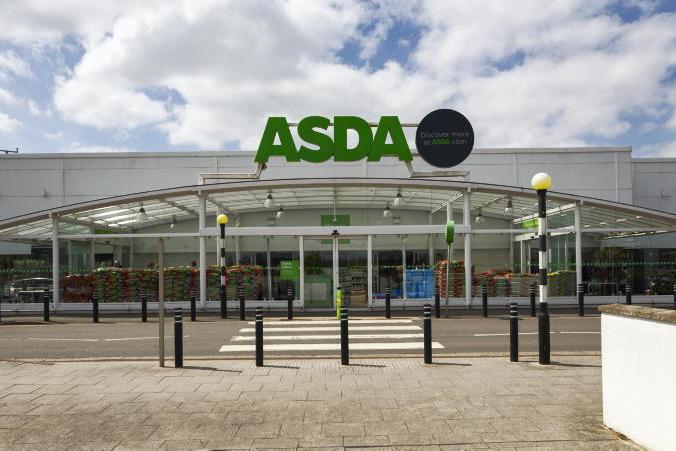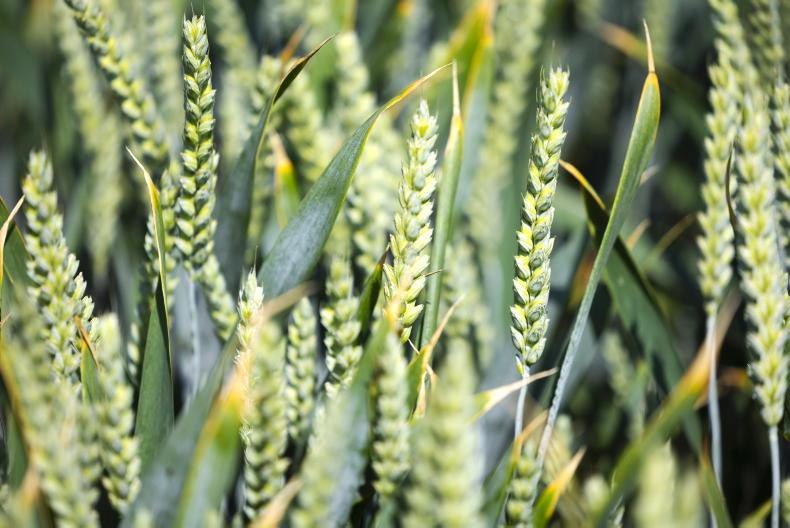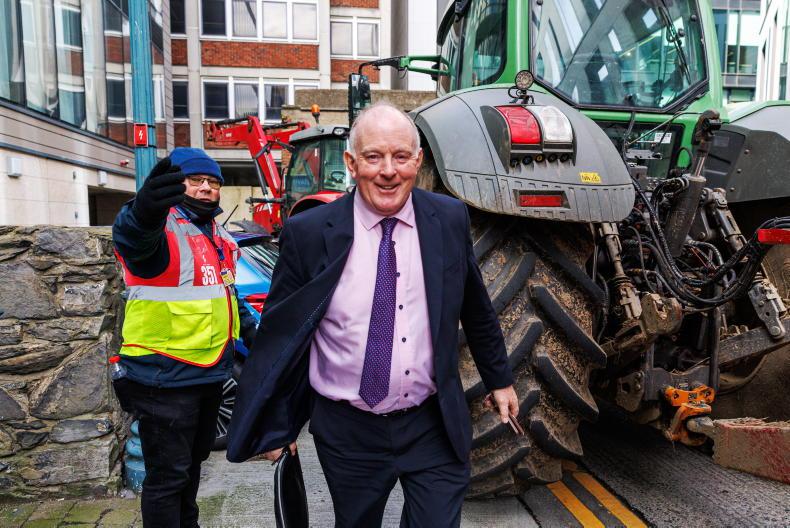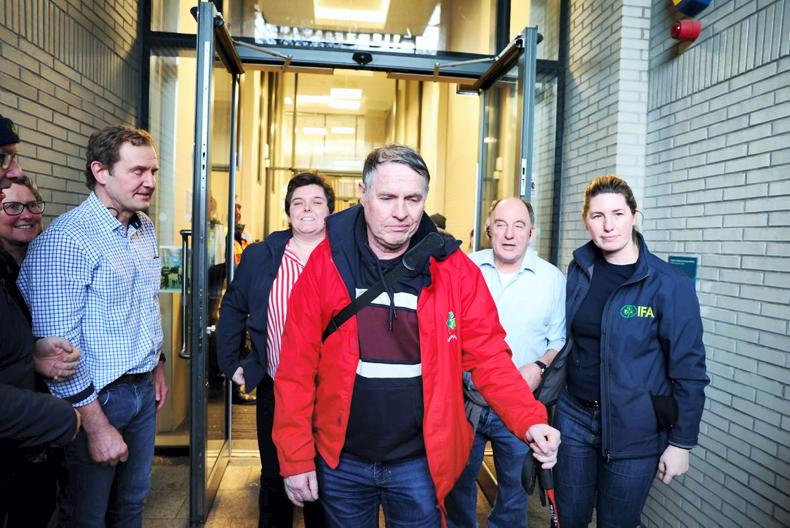The sheep trade is steady at a base quote of €5.50/kg to €5.60/kg, with factory appetite for lambs helped by tighter numbers.
Last week’s factory throughput recorded a sharp decline, reducing 19,311 head to 43,299.
A significant contributor was one day less processing. Tighter numbers and some factories operating early in the week at slower momentum to facilitate the first week of mandatory electronic tagging also had an effect. But even with this, it does not account for the sharp fall-off.
The influence of lower lamb supplies is also being magnified by negligible volumes of hoggets and tighter availability of ewes.
All factories remain on the same base quote as last week, with Kildare Chilling leading the line with its base quote of €5.60/kg and 10c/kg quality assurance (QA) top-up.
The general price being negotiated by farmers with QA lambs ranges from €5.65/kg to €5.70/kg, with groups securing up to €5.75/kg or higher by means of producer bonuses. Non-QA lamb is ranging in price from the base quote to 5c/kg to 10c/kg higher. This depends on the negotiating power and the number of lambs on offer.
The stronger demand is also being reflected in mart sales, many of which recorded a price rise of €1 to €3 per head this week.
IFA sheep chair Sean Dennehy is repeating calls for a higher quality assurance (QA) payment.
“Meat factories must reward farmers properly for the work and effort they put into QA with a 30c/kg payment.”
The trade in Northern Ireland has also improved, with factory quotes for Thursday up 5p/kg on last week at £4.30/kg.
Regular suppliers are securing £4.35/kg, which equates to €4.90/kg at 88.8p to the euro and €5.16/kg including VAT at 5.4%. British lamb prices are running significantly higher, with the latest AHDB market report recording an average R grade price of £4.70/kg (€5.58/kg). The ewe trade is sharper, with the mart trade particularly strong (see comment below).
Ewe quotes range from €2.60/kg to €2.80/kg, with agents requiring a significant premium to return a margin on mart-purchased ewes.
Japanese access
Bord Bia’s Declan Fennell described access to the Japanese market as a significant boost in expanding international markets.
“It’s another endorsement of Irish production standards on the international stage,” he said.
“Growing our international presence is a key requirement for the success of the sector. This builds on the investment that Bord Bia has put into the Asian market and coincides with the opening of a new Bord Bia office in Tokyo.”
Read more
SheepWatch: lower supplies sees improved trade
Northern View: increased cattle supplies adds to price pressure
The sheep trade is steady at a base quote of €5.50/kg to €5.60/kg, with factory appetite for lambs helped by tighter numbers.
Last week’s factory throughput recorded a sharp decline, reducing 19,311 head to 43,299.
A significant contributor was one day less processing. Tighter numbers and some factories operating early in the week at slower momentum to facilitate the first week of mandatory electronic tagging also had an effect. But even with this, it does not account for the sharp fall-off.
The influence of lower lamb supplies is also being magnified by negligible volumes of hoggets and tighter availability of ewes.
All factories remain on the same base quote as last week, with Kildare Chilling leading the line with its base quote of €5.60/kg and 10c/kg quality assurance (QA) top-up.
The general price being negotiated by farmers with QA lambs ranges from €5.65/kg to €5.70/kg, with groups securing up to €5.75/kg or higher by means of producer bonuses. Non-QA lamb is ranging in price from the base quote to 5c/kg to 10c/kg higher. This depends on the negotiating power and the number of lambs on offer.
The stronger demand is also being reflected in mart sales, many of which recorded a price rise of €1 to €3 per head this week.
IFA sheep chair Sean Dennehy is repeating calls for a higher quality assurance (QA) payment.
“Meat factories must reward farmers properly for the work and effort they put into QA with a 30c/kg payment.”
The trade in Northern Ireland has also improved, with factory quotes for Thursday up 5p/kg on last week at £4.30/kg.
Regular suppliers are securing £4.35/kg, which equates to €4.90/kg at 88.8p to the euro and €5.16/kg including VAT at 5.4%. British lamb prices are running significantly higher, with the latest AHDB market report recording an average R grade price of £4.70/kg (€5.58/kg). The ewe trade is sharper, with the mart trade particularly strong (see comment below).
Ewe quotes range from €2.60/kg to €2.80/kg, with agents requiring a significant premium to return a margin on mart-purchased ewes.
Japanese access
Bord Bia’s Declan Fennell described access to the Japanese market as a significant boost in expanding international markets.
“It’s another endorsement of Irish production standards on the international stage,” he said.
“Growing our international presence is a key requirement for the success of the sector. This builds on the investment that Bord Bia has put into the Asian market and coincides with the opening of a new Bord Bia office in Tokyo.”
Read more
SheepWatch: lower supplies sees improved trade
Northern View: increased cattle supplies adds to price pressure









SHARING OPTIONS